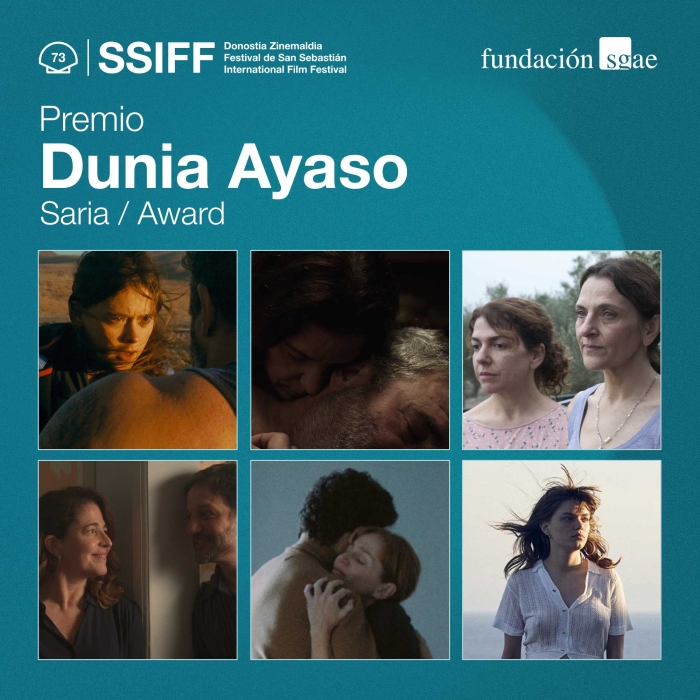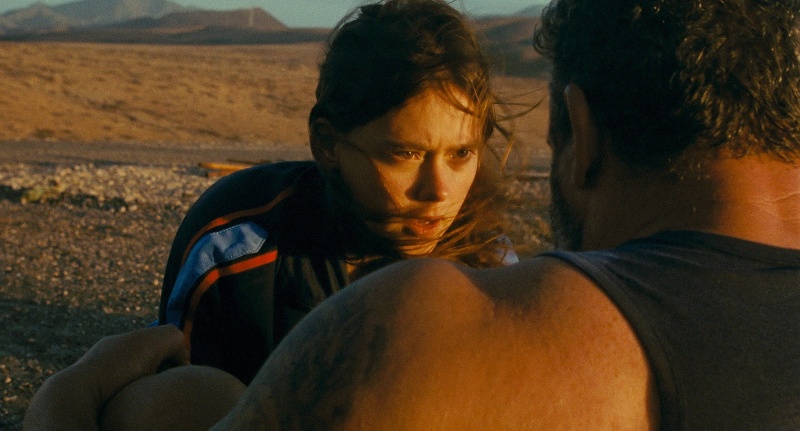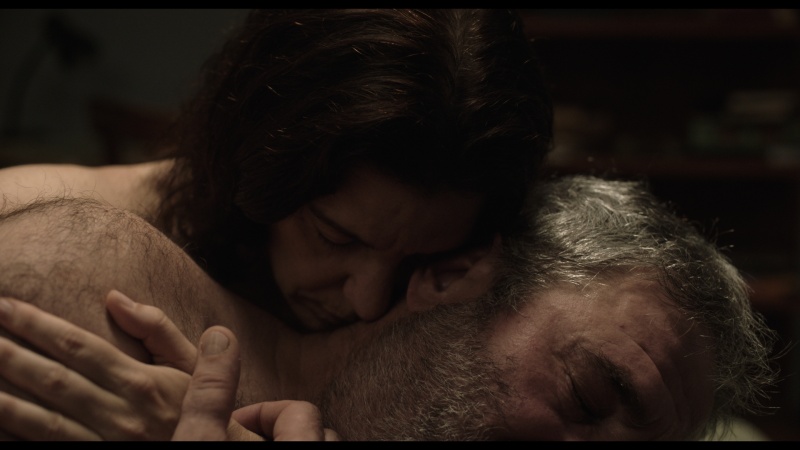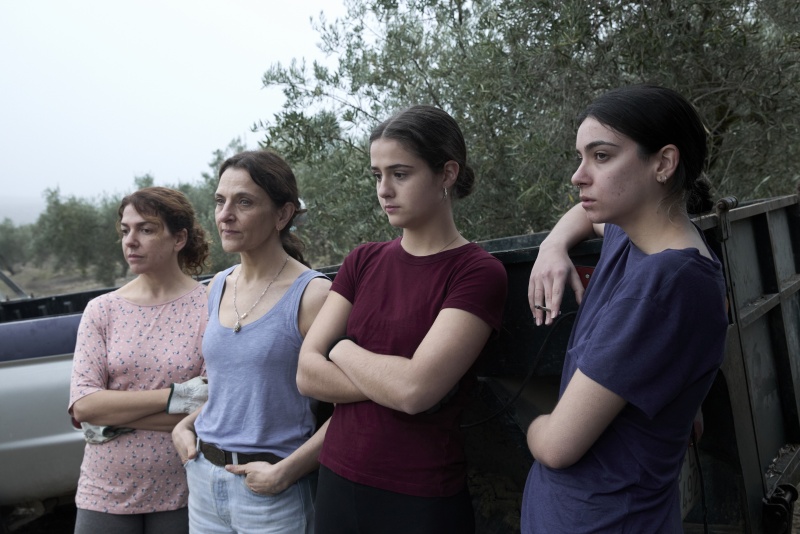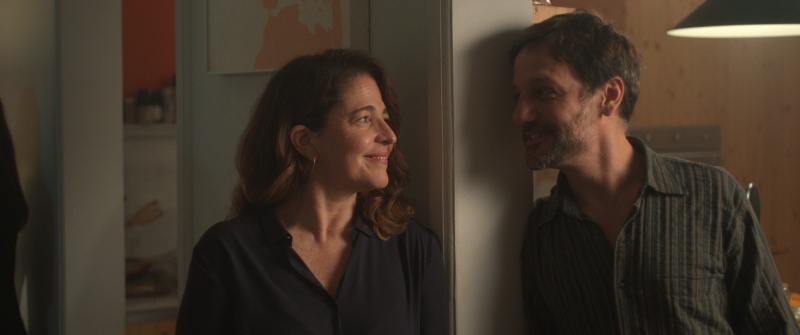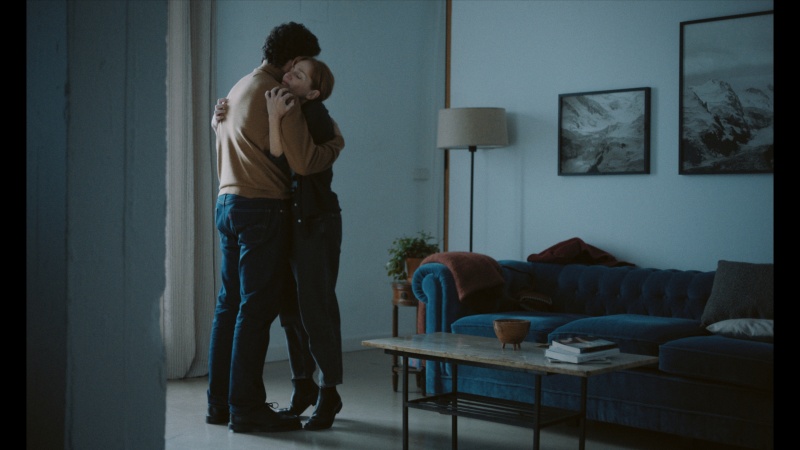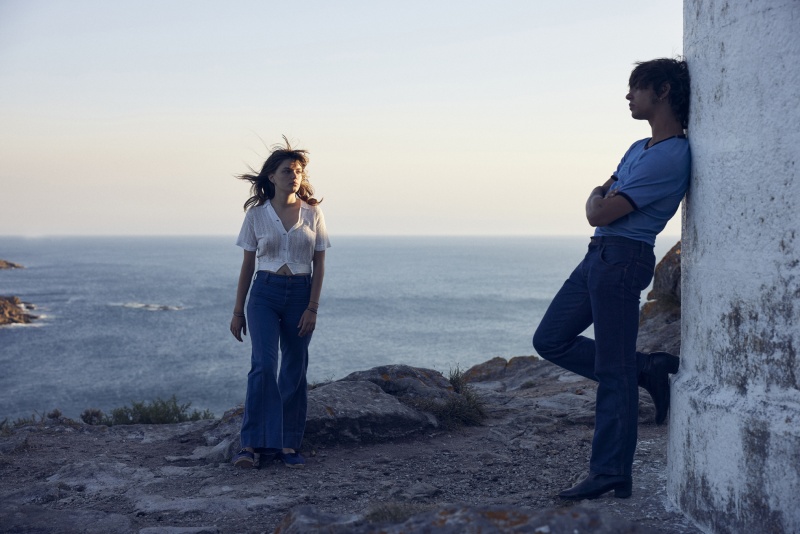Coming with 5,000 euros, the Award, to be presented in the framework of the San Sebastián Festival on Friday 26, recognises the gender perspective in Spanish cinema
The SGAE Foundation and the San Sebastián Festival announce the six finalist films competing for the Dunia Ayaso Award 2025, going to the title made in the last year which best reflects the gender perspective: La lucha / Dance of the Living by José Alayón, Los Tortuga / The Exiles by Belén Funes, Mi amiga Eva / My Friend Eva by Cesc Gay, La terra negra / The Black Land by Alberto Morais, Romería by Carla Simón and Nosotros / The Story of Us by Helena Taberna. The winner will be announced on Friday, 26 September, at 17:00 in the Kursaal Press Club.
Five of the six films have been selected by the San Sebastián Festival for its non-competitive Made in Spain section, with which the SGAE Foundation collaborates, whilst José Alayón’s La lucha competes in the New Directors section, where it is also a contender for the Kutxabank-New Directors and Youth Awards.
The accolade, in its ninth edition this year, pays tribute to the filmmaker from the Canary Islands Dunia Ayaso, who died in 2014 and was an icon of films championing the feminist point of view. The award comes with 5,000 euros.
With this award, the SGAE Foundation and the Zinemaldia acknowledge the director of the recently produced feature film which, in addition to its cinematic value, best highlights the gender perspective through female characters with a leading role in the story or which portrays the situation of women in society. Proposals that look outside the box of the stereotypes and commonplace attitudes which so often give a false impression of the reality of women, their possibilities and their historical memory.
A jury presided over by last year’s winner, Celia Rico Clavellino, for her film Los pequeños amores / Little Loves, and whose members are the filmmaker and producer Laura Hojman (Un hombre libre / A Free Man, Made in Spain) alongside the programmer and critic Paz Piñar Llamas, will have the task of choosing the winning director of the edition.
Recipients of the award in previous years are Carla Simón (2017) for Verano 1993 / Summer 1993, the filmmaker Arantxa Echevarría for Carmen y Lola / Carmen & Lola (2018), Belén Funes for La hija de un ladrón / A Thief’s Daughter (2019), Pilar Palomero por Las niñas / Schoolgirls (2020), Ainhoa Rodríguez for Destello Bravío (2021), Rocío Mesa for Secaderos / Tobacco Barns (2022), Elena Martín Gimeno for Creatura (2023) and Celia Rico Clavellino for Los pequeños amores / Little Loves (2024).
About Dunia Ayaso
The screenwriter and director from the Canary Islands, Dunia Ayaso (Las Palmas, 1961 – Santa Cruz de Tenerife, 2014) authored box-office hits including Perdona bonita pero Lucas me quería a mí / Excuse Me Darling, But Lucas Loved Me, Descongélate / Chill Out and La isla interior / The Island Inside. She was accompanied in her professional years by her inseparable colleague, Félix Sabroso. For television, they co-wrote hugely popular series such as Mujeres and Quítate tú para ponerme yo. Their last joint project, the feature film El tiempo de los monstruos, was directed single-handed years later by Félix Sabroso. Ayaso also developed a career in theatre with plays like Lifting, La gran depresión and Las histéricas somos lo máximo. A member of the SGAE, amongst the outstanding awards of her professional career is the Navaja de Buñuel in 2009, given by Televisión Española to the Best Film of the Year for La isla interior / The Island Inside, starring Alberto San Juan and Geraldine Chaplin.
New Directors
On the arid island of Fuerteventura, Miguel and his daughter Mariana try to move on after his wife dies, a loss that has cast them both adrift. Canarian wrestling is their refuge, their way to make a place for themselves in the world. But Miguel’s body is starting to fail, and Mariana’s rage pushes her to break the rules. With the championship final just around the corner, father and daughter must find their way back to one another before it’s too late.
Made in Spain
María works with her brother Ángel in a family business, the industrial mill in the town she left years back. She, completely disconnected from everything, works methodically in order to get by, while Ángel's friends are delighted to see María return, relishing her failed life. When Ángel hires Miquel, he and María strike up a mutual admiration. The presence of this outsider sparks fear; not only has Miquel spent time in prison, but he also has a mystical side that gives him sway over the others.
Delia and her daughter Anabel each mourn the father's death in their own way. Between the olive groves of Jaén and the streets of Barcelona, the two women confront the uncertainty of their future in a balancing act between love and pain, tenderness and harshness.
About to turn 50, Eva has been married for more than twenty years and has two teenage children. During a business trip to Rome, she realises that she wants to fall in love again before it's "too late". Back in Barcelona, Eva embarks on a new life, single and open to the game of seduction and romance. For a whole year, we will follow this woman who has turned her world upside down in search of a feeling. An impossible one, but perhaps chance can save us.
The Story of Us reconstructs a love story starting with its end. Ángela and Antonio are a couple who, like so many others, fell in love, shared dreams, had children, tried hard not to give up and fell several times. When love ends, the questions arise: Where did it all go wrong? How did we end up like this? On a journey through the highs and lows of their relationship, Ángela and Antonio struggle against the passing of time, the interferences of desire and the idealisation of love.
Marina (18), adopted at a very young age, travels to Vigo to meet the family of her biological father for the first time. Her arrival rekindles a past that had been long buried. Guided by her mother's diary and through a special connection with her new cousin, Marina will discover the family wounds and can at last relive the fragmented memory of the parents she can barely remember.

